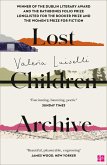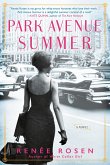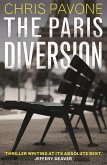BenutzerTop-Rezensenten Übersicht

Bewertungen
Insgesamt 1245 Bewertungen| Bewertung vom 09.05.2019 | ||

|
Lost Children Archive (eBook, ePUB) A typical patchwork family: mother with daughter and father with son form a new unit after the parents got to know each other through work. For a new professional project of the father, they leave New York and their cosy home for the southern states close to the Mexican border. A very unique road trip of a family which is educating for their young children, but also brings them closer to the hot political topic: thousands of children are on their way to the border to come to the USA. As the family gets closer, the radio news become more and more a part of their life, too. |
|
| Bewertung vom 05.05.2019 | ||

|
Jasmijn ist kein ganz normales Mädchen zu Beginn der 80er Jahre in Rotterdam. Sie ist lieber für sich alleine, Lärm und grelles Licht lösen Migränen aus und zu ihren Mitmenschen findet sie nur schwer Kontakt. Ihre Mitschüler finden sie sonderbar, geradezu arrogant, weil sie sich immer absondert. Was stimmt mit diesem stillen Mädchen nicht? Jasmijn und ihre Familie wissen es auch nicht, sie war schon immer so, nur ihr Hund Senta scheint sie zu verstehen. Je älter sie wird, desto auffälliger ist ihr Verhalten, aber für Jasmijn ist alles in Ordnung, so lange niemand ihre Routinen stört und sie sich zurückziehen kann. |
|
| Bewertung vom 03.05.2019 | ||

|
When Alice Weiss left her small town in Ohio for New York, she only had one aim: becoming a photographer. Yet, live wasn’t easy for an inexperienced young woman with high ambitions. A friend of her deceased mother arranged her an interview for the job of a secretary. Not exactly what Alice was looking for, but, well, she needed money and working for Helen Gurley Brown who had just taken over the Cosmo magazine seemed as good as any other job. What she didn’t expect was that her time as Helen’s right hand would bring her much more than just the money to survive: she learned to be ambitious, not to see marriage as the only goal for a woman and to stand up for herself. 1965 wasn’t quite ready for feminism and so wasn’t Alice. But things had to start finally. |
|
| Bewertung vom 29.04.2019 | ||

|
They have been living in Paris for some time now and it took Kate more than one year to finally accept that she would never be like all the other stay-at-home mothers who only cared for the children and spent their days chatting in cafés. So, she decided to return to her job. She is supposed not to ask too many questions, just to do what is necessary when she gets a new mission. Yet, that morning, things are somehow strange in the city, police is everywhere and there is a threat perceptible, but where does it come from? Another series of attacks on the French capital? Kate is good at her jobs and that’s the reason why she soon figures out that the whole scenario is aimed at somebody completely different and that this could also mean that her family and especially her husband is the primary target. |
|
| Bewertung vom 28.04.2019 | ||

|
When Juliet finally comes to High School, she has high expectations. Since she is assigned to many honours classes, her talents sure will soon be seen by her teachers. However, instead of concentrating on her educational goals, Juliet is completely preoccupied with what others think of her, why she does not fit in and why she even lost the only friend she had in middle school. She struggles more and more and enters a spiral of drugs and self-harm until she, at last, cries for help and is brought to a hospital. With changing school, she hopes to find back to her old self, but the mental illness she has to recognize as a part of her personality, keeps her at the edge between life and death. |
|
| Bewertung vom 25.04.2019 | ||

|
Die Sowjetunion ist nicht mehr das, was sie mal war, genaugenommen ist sie ja gar nicht mehr, und vom neuen Russland erwarten sie nicht viel. Es bleibt den beiden Großeltern also nicht viel anderes übrig, als mit dem kränkelnden Enkelkind Max auch nach Deutschland auszureisen. Irgendein Onkel hatte bestimmt ein Schwager, der Jude war oder so. Im Flüchtlingswohnheim angekommen herrscht die Großmutter jedoch wie eh und je. Max darf nichts anfassen und schon gar nichts essen, der Magen, das Immunsystem, einfach gar nichts will bei dem Jungen richtig funktionieren. Und überall lauern Gefahren. Die größte jedoch geht von Nina aus, die mit ihrer Tochter Vera ebenfalls das Glück im neuen Land sucht. Als der Großvater sie zum ersten Mal sah, war es um ihn geschehen. Aber vor so vielen neuen Eindrücken, hat die Großmutter das noch gar nicht gemerkt. |
|
